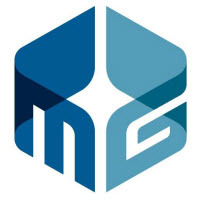
Description
Unit Specific Position Responsibilities Performs related work as required. Maintains patient confidentiality. Attends required meetings and participates in committees as requested Enhances professional growth through educational programs, conferences, and workshops Recognizes emergency situations; initiates life support measures for patients as necessary. Answers telephone and screens calls appropriately. Maintains unit in a clean and orderly manner. Keeps equipment in good working condition. Maintains equipment. Restocks supplies in assigned work area. Files interpretations. Maintains records, files, and tracing information. Monitors EKG#s and charging of EKG#s in Epiphany Gathers information for monthly pacemaker transmissions, records on flowsheet and reports information to pacemaker RN Enrolls patients in Cardiac Event Monitor Service. Instructs new patients and provides follow-up as needed. Delivers tests to physicians for interpretation. Reports abnormal results immediately, following department protocol. Takes blood pressure, watching cardiac monitor for arrhythmias or any stress testing EKG changes. Relays this information to the physician. Keeps accurate progress notes and assists the physician during testing procedures Calibrates machine and loads graph paper, if appropriate. Prepares patient for testing procedures. Explains procedures to patients Qualifications, Knowledge # Experience Required Qualifications (Including any licensure, certification, education): CCT (Certified Cardiographic Technician) certification within 18-months of hire Basic Life Support (BLS) training, or within 90 days of hire and must maintain throughout employment Mandatory Reporter training or within 90 days of hire and must maintain throughout employment. Organizational Requirements: Maintain stroke education per regulatory requirements. # # Preferred Qualifications: High School Diploma # # Required Knowledge, Skills # Experience: Knowledge of a variety of testing procedures to operate and maintain equipment. Knowledge of ECG examination, diagnostic, and stress testing procedures Knowledge of anatomy, physiology Knowledge of physical exercises for patients. Knowledge of common safety hazards and safety precautions to establish and maintain a safe work environment. Skill in administering a variety of tests as directed. Skill in eliciting appropriate information and gaining cooperation from patients Skill in writing reports and completing charts. Skill in taking and evaluating vital signs. Ability to apply written guidelines, procedures and standardized work practices Ability to maintain a professional manner with patients through attire, mannerisms, and dialogue. Ability to establish effective working relationships and to communicate effectively. Ability to read, write, understand and speak fluent English Proficient use of standard office equipment including computers, fax machines, copiers, printers, telephones, etc.
Apply on company website

